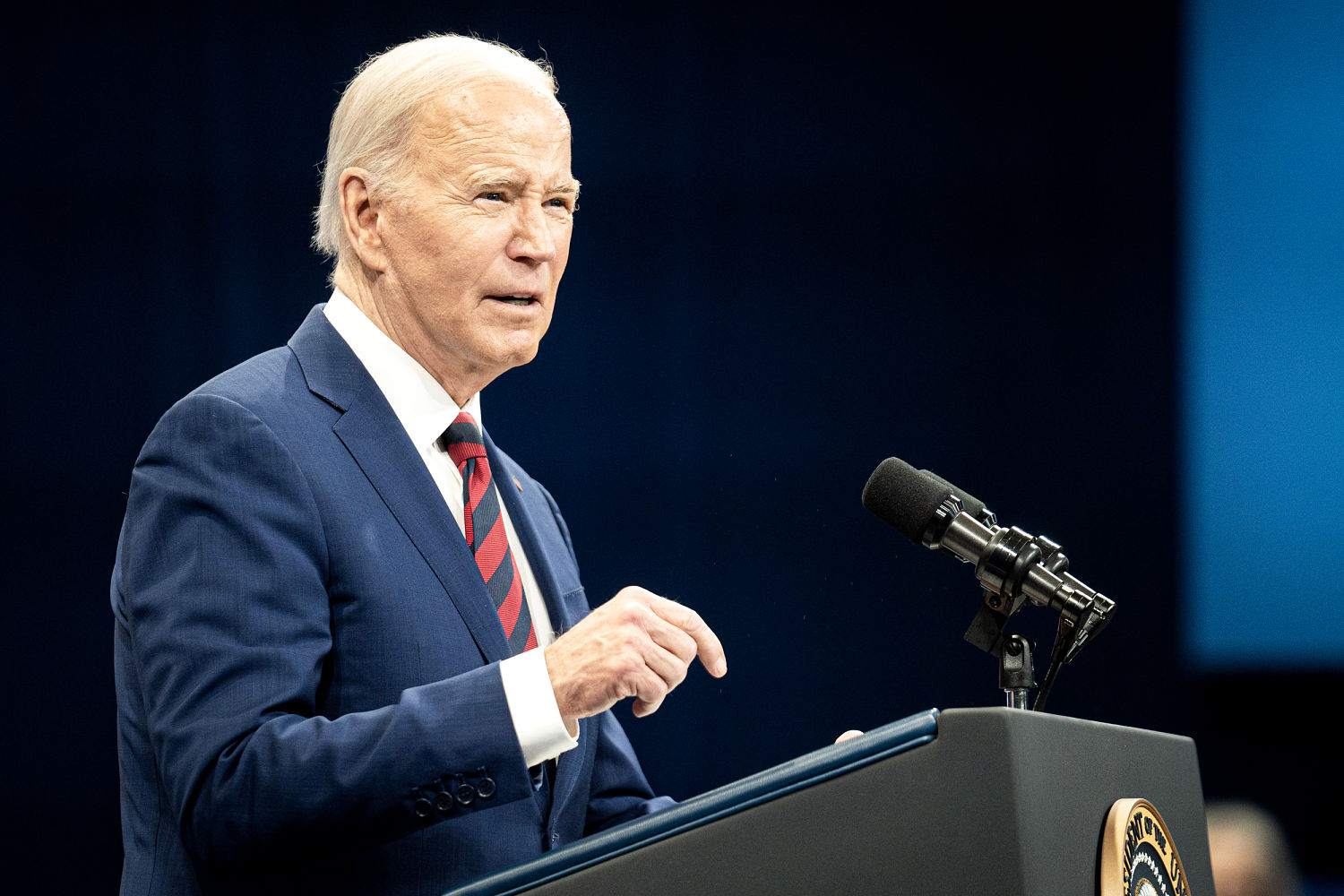Biden to call for tripling tariffs on Chinese metals


PITTSBURGH — President Joe Biden will call for tripling tariffs on Chinese steel and aluminum Wednesday when he speaks to union members in battleground Pennsylvania.
Biden, who is set to speak at the headquarters of the United Steel Workers, is in the middle of a three-day swing through the state focusing on economic issues, while his opponent, former President Donald Trump, faces jury selection in New York in his trial on charges he falsified business records to cover up an alleged affair with an adult film star.
The Biden administration says China is overproducing goods to export to the U.S., driving down prices and hurting the American economy because higher-quality U.S. products must compete with artificially low-priced alternatives.
The current average tariff on steel and aluminum from China is 7.5%, and Biden is calling on the Office of the U.S. Trade Representative — the federal agency charged with developing U.S. trade policy — to triple the tariff rate.
Biden is also directing his administration to work with Mexico to prevent China’s evasion of tariffs on steel and aluminum that’s imported from Mexico into the U.S. The trade representative’s office is also launching an investigation into China’s trade practices in the shipbuilding, maritime and logistics sectors.
Still, critics argue increased tariffs would backfire and raise consumer prices and inflation. China has denied the overcapacity accusation as “groundless,” and it accuses the U.S. of trying to prevent global competition.
“If taken, these actions will not increase inflation,” a senior administration official said. “But they will protect American jobs and the steel industry.”
Biden has been ramping up his economic rhetoric against China. So has Trump, who has said he’d consider a 60% tariff on all Chinese imports.
During his administration, Trump imposed new tariffs on imports of washing machines, solar panels, steel, aluminum and billions of dollars’ worth of goods from China. The new levies amounted to a tax increase of $80 billion a year, according to the Tax Foundation, a nonpartisan, nonprofit tax policy group. Biden has kept most of Trump’s China tariffs.
The push comes amid the White House’s controversial opposition to a buyout of U.S. Steel by Japan’s Nippon Steel. Shareholders just approved the potential deal, but it faces stiff backlash from union members and Biden, who has redoubled his efforts to ally himself with unions after he joined a picket line with the United Auto Workers last year and won the endorsement of the United Steel Workers.
With polls showing Biden trailing Trump significantly when it comes to voters’ perception of who would better handle the economy, the White House is touting that nearly 800,000 manufacturing jobs have been created during the Biden administration and that construction employment is at a record high.
Some see the crackdown on China as an acknowledgment that the Biden administration needs to do more to show it’s taking the reins of an unpopular economy.
“It has nothing to do with elections,” a senior administration official said. “I think it has to do with the fact that we’re actually acting from a place of self-confidence and strength because our economy is growing and manufacturing is rebounding.”
But John Basalyga, a developer in Scranton who adamantly backs Trump, blames the Biden administration for the rising costs of doing business.
Biden “says his policies are helping middle America,” he said. “Just walk around and ask the real people of this country and they’ll tell you the exact opposite.”
The White House hopes the push for higher tariffs on China will resonate with blue-collar voters in Biden’s native Pennsylvania. Joe Padavan, a retired steelworker from Wilkes-Barre, said Biden has stood up for union members and stood up to China — and he doesn’t blame him for high inflation or rising prices.
“The problem today is corporate greed more than anything,” Padavan said. “So hopefully by putting on some tariffs, it’s going to bring some of our people here. Why pay the tariffs when you could build it here?”







